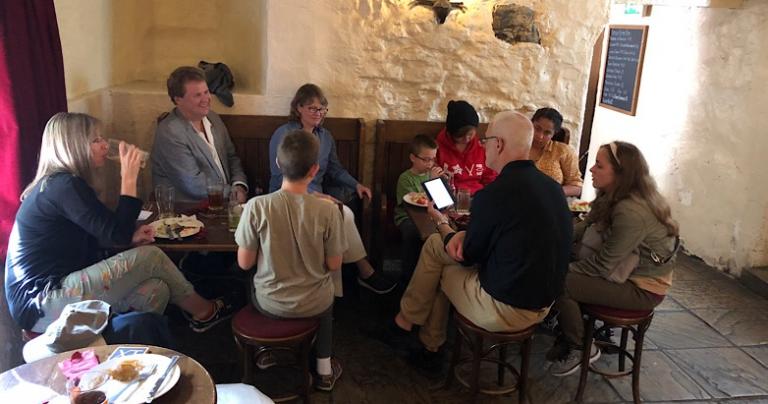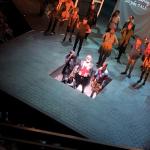
“I would really like to persuade you.”**
Socrates is confronted with his failure to persuade his students (Republic Book II) and gives a saving answer. Education has crashed, but instead of blaming someone else, Socrates takes the blame and the responsibility to find a solution.
That is a real teacher. Almost every word he says in reply to his students matters. Socrates shows he is a real teacher and not a sophist, a wise guy for hire.
He does not blame the students, but himself. He has failed. I am told they once used canaries to tell miners when bad air was in coal mines. Canaries die in bad air long before the miners. If a canary died, you did not blame the canary, you ran. My Papaws both told me that in the chemical plant, just like in a coal mine, when you see a worker running, you run. When an educator sees students not learning, he should run and get help.
When your best student (Glacon in Republic) is not persuaded, is not educated by the discussion, he is just led, then Socrates knows he has failed. Socrates is the greatest master of the question until Jesus and yet Socrates has failed. He could cover up the failure, go into “talky-man” mode to hide the failure in a blizzard of words.
Socrates owns up.
Socrates will do the job himself. Socrates says: “I would really like. . .” He is not indirect or looking to hire an adjunct to do the job. He will do the job, because the job is his to do. A typical sophist, an administrator, will say: “You should be persuaded by the processs of education . . .” Socrates uses the active tense. He is there and he will not be silent.
Socrates strongly desires to do the job. Sometimes we do our duty, but we are not into it. We do what we must, because we must, yet if there was a way out, we would take it. Socrates would “really like” to persuade and not just tell his students what to think. He really wants to see Glaucon, his friend and best student, thrive. This matters, because education has a performative aspect and the teacher who does not want to be there, does not strongly desires to be in the discussion, will fail.
Socrates cherishes the will of his students. Good schools, especially Christian schools, cherish the free will of the studen. God put humankind in a garden and let us fail. He did not overpower us with His words or His beauty and He easily could have done both.
The Almighty does not force us to love Him and if we say “no,” then our “no means no” for all eternity.
Persuasion is the hallmark of true education. Persuasion is not stamping on the souls of students. A man persuaded is not told what to think, he makes it part of himself. A man persuaded will die for his idea, when a man merely in agreement, intellectually muscled into submission, will follow the next tyrant that comes.
Socrates wants to educate this one student NOT all students. Socrates is not looking for a great, grand, glorious global gig. He just wants Glaucon and the lads in the room to get it: justice is better than injustice. He is talking to Glaucon, the best of the group, and is focused on helping that one young man to understand.
We oft try to save America, or the West, or our church when only people can be saved. People are eternal and no institution is. People are precious, but institutions are not.
Socrates goes further by making this about Glaucon and not merely about “the youth” or “them.” You cannot educate the aggregate, only the particular and Socrates does this for nine more books.
Let’s be like Socrates!
———————————————-
*I begin an informal summer reading of Republic using Scott/Sterling (a new translation for me). Part 1. Part 2. Part 3. Part 4. Part 5. Part 6. Part 7. Part 8. Part 9. Part 10. Part 11. Part 12. Part 13. Part 14. Part 15. Part 16. Part 17. Part 18. Part 19. Part 20. Part 21. Part 22. Part 23. Part 24. Part 25. Part 26. Part 27. Part 28. Part 29. Part 30. Part 31. Part 32. Part 33. Part 34. Part 35. Part 36. Part 37. Part 38. Part 39. Part 40. Part 41. Part 42. Part 43. Part 44. Part 45. Part 45.5. Part 46. Part 47. Part 48. Part 49. Part 50. Part 51. Part 52. Part 52.5. Part 53. Part 54. Part 55. Part 56. Part 57. Part 58. Part 59. Part 60. Part 61. Part 62. Part 63.
**Book II, Republic. Socrates is speaking to Glaucon, his student with bright eyes.












